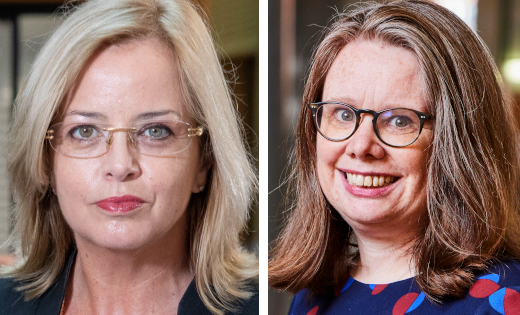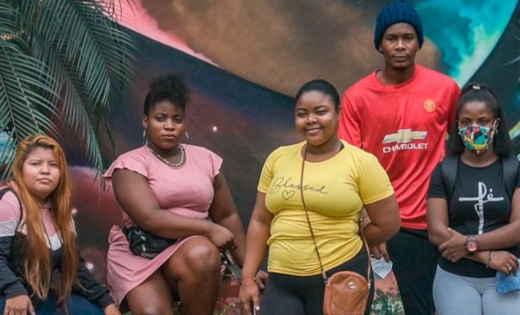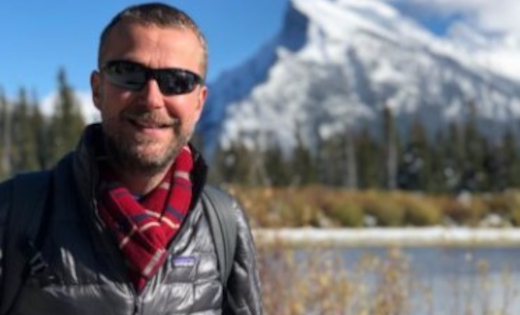Inside Track | Helping transform lives through open research
“An open research culture will ultimately advance knowledge and help transform lives.”
Professor Bernadette Moore and Claire Knowles

Claire Knowles, Associate Director: Research and Digital Futures, joins forces with Bernadette Moore, Professor of Nutritional Sciences and Head of the Graduate School for the Faculty of Environment, to showcase some of the outstanding examples of how open research practices are playing a vital role in helping deliver the University’s key strategic aims.
Open research practices are one of the four overarching themes of our newly launched Research Culture strategy, outlining the University’s commitment to ensuring our communities are fully supported to work openly and with the highest standards of integrity.
The cultural change to open research across the range of disciplines at Leeds is already well underway, with the Open Research Group strategic plan supporting all schools and faculties. The four key elements within this, designed to help realise the ‘enabling open research practice’ theme of the Research Culture strategy, are:
- raising awareness of open research
- refining training for open research practices
- fairly attributing research contributions; and
- improving access to the University’s research.
Our Open Research Statement also highlights the actions we can take to further extend open research at Leeds. We adhere to the principle that all research should be ‘as open as possible, as closed as necessary’ throughout the research cycle.
Amazing work
Fostering open research isn’t something new to the University. While the Open Research Group’s mission is to facilitate the change in research practices we all want to see, it’s also there to shine a spotlight on the amazing work already underway in this area across the institution.
Facilitated by Research England funding, the Open Research Group recruited two postgraduate researchers – Chris Cox and Dorka Tamas – to gather 75 case studies on the adoption of open research at Leeds, which provide a really useful guide for colleagues. Featured below are just a few of the excellent examples highlighted in this project.

Some of the young people taking part in the Changing the Story project
Changing the Story
Professor Paul Cooke is the principle investigator (PI) of Changing the Story, a multi-disciplinary project co-produced with young people from five post-conflict countries – Colombia, Cambodia, Rwanda, Kosovo and South Africa.
The project asks how the arts, heritage and human rights education can support youth-centred approaches to civil society building in these countries.
In Changing the Story, co-production is about young people defining what the problem is and how they want to solve it. Good practice comes from a lot of co-design, co-delivery and co-evaluation. Paul talks about how Changing the Story became more about working with the young people and giving them ownership of the project, and how the Arts and Humanities Research Council (AHRC) supported this.
Paul also discusses the ethical considerations of co-production where participants are co-researchers, and how the project has addressed the practicalities of an open research approach in real time. The sensitive topics addressed meant everything had formal ethical review and required mechanisms to be in place for continuous informed consent.
The team has been sharing work-in-progress on the project website to form part of the ongoing debate in this area. A repository of information has also been created for future research, which is accessible to the public.
‘The dream’ scenario
The challenges in adopting open research practices in Health Sciences, due to the heavy ethical considerations, are acknowledged by Dr Peter Tennant in his case study – Translating casual inference methods into health and social science.
However, Peter is still able to cite good examples of sharing his research openly, such as the feedback on a pre-print being incorporated in a submission and acknowledged. Code that was openly available on the cloud-based software service GitHub was also adapted by others and additional analysis undertaken.
Peter said: “In a sense, this is the dream: you’ve provided something that people have then actually used.”
Peter also encourages his students to follow an open research strategy, urging them to be transparent throughout the process, while also sharing practices and the potential benefits with them.
Fruits of your labour!
Professor Amanda Bretman is Dean of Research Quality at Leeds. In her field – the study of fruit flies – open research is common as the research community has been making datasets available for quite a while.
Amanda remembers the first occasion she had a paper accepted, back in 2005, and the editor asked for a data accessibility statement. It’s becoming more common for data to be available in papers, and to share statistical analysis and codes.
Amanda said: “There’s quite a lot of sharing of resources within my research community. Our next papers will have both the data and all the markdown files as well.”
Barriers to extracting information from datasets can reduce the usefulness of openly shared data. This is potentially due to the correct metadata not being available. When sharing data, we need to ensure people can use it.
Amanda added: “The Open Research Case Studies project is very important because I think many people perhaps misunderstand what open research is. It’s not because people don’t do it but because they don’t understand what it is and how they’re already doing parts of it.”

Performing Mountains principle investigator, Professor Jonathan Pitches
Moving mountains
Performing Mountains was a 24-month project culminating in the completion of an academic monograph (Palgrave, 2020) – a new piece of practice-led research based on the first ascent of the Indian Face climb in Snowdonia. It was showcased at stage@leeds followed by a screening at the Kendal Mountain Festival, together with several public talks and an international symposium.
The interdisciplinary nature of the project – working between geology, geography, performance studies and history – meant practitioners were included who weren’t affiliated with an institution. Paywalls and difficulties in sharing monographs openly restricted further access and opportunities for dialogue with creative professionals.
For project PI, Professor Jonathan Pitches, open research means we have to dispense with such barriers to reap the rewards.
He said: “You can build a readership of your research with open access in ways I certainly wouldn’t have dreamt of 10 years ago. I can get a thousand hits on an article.”
Closer collaboration
Nine postgraduate researchers have also created Wikimedia resources related to their PhDs during the past two years. Attending the event to mark the end of the second cohort, we were struck by the collegiate nature of the project – despite the wide breadth of the subjects they’ve contributed to, which range from the Utility Clothing Scheme during the Second World War to cryogenic electron microscopy and DNA origami.
Two poems were also commissioned as part of this project highlighting the contribution and value of Wikimedia in the sharing of research with the wider world.
Next steps
Looking ahead, the top priorities for the Open Research Group are to expand available information on the open research hub, while also supporting the Research and Innovation Directors and their delegates within our schools to further promote open research activities within their disciplines.
A short online learning resource about open research will be launched in the next few weeks. It has been developed by members of the Open Research Group in collaboration with the Digital Education Service to help highlight the many aspects of open research available to colleagues.
Contact the open research team if you’d like to learn more about the many opportunities available to adopt these practices in your roles, to share your experiences or to host a workshop in your school or research group.
Please share your views in the first of our new Research Culture pulse surveys, which this month focuses on enabling open research. The survey, which closes on 31 October, only takes five minutes to complete, and feedback will help create a positive and inclusive research culture at Leeds.
You can also attend our research culture cafés or one of our regular open lunch sessions to hear from a range of speakers.
An open research culture will ultimately advance knowledge and help transform lives, but we can only achieve our aspirations through the collaborative efforts of everyone in our community. We look forward to working with you so that together we can make a real difference in the world.